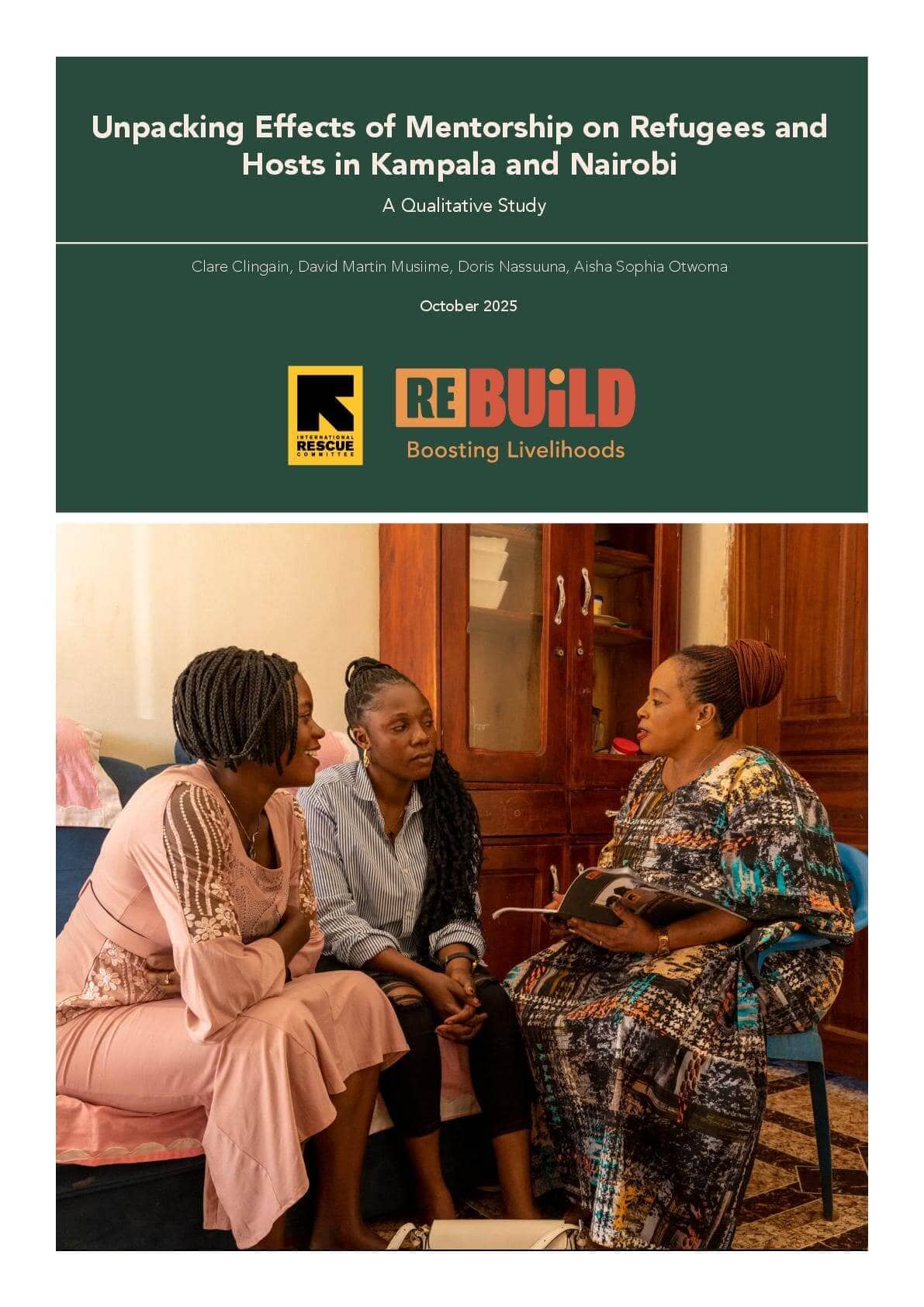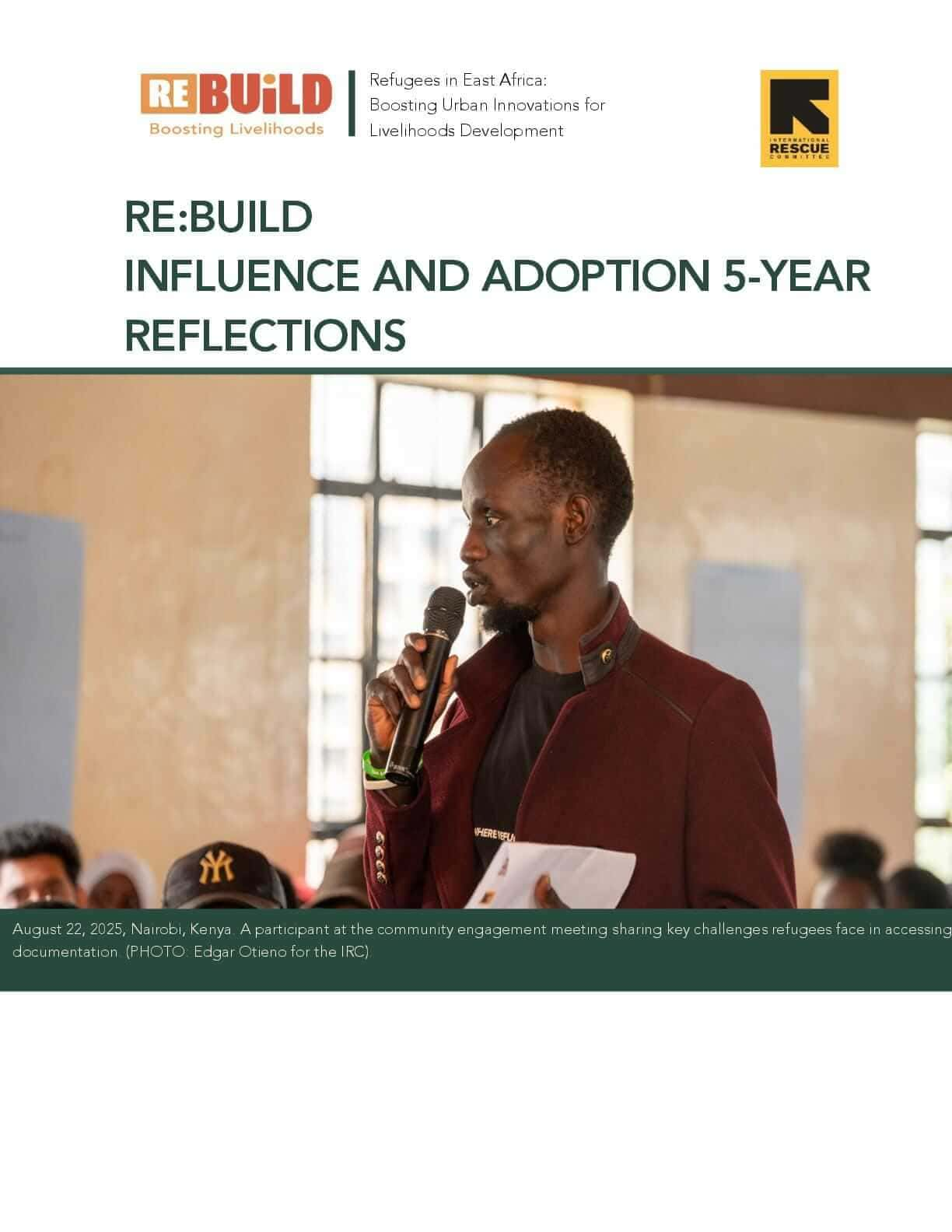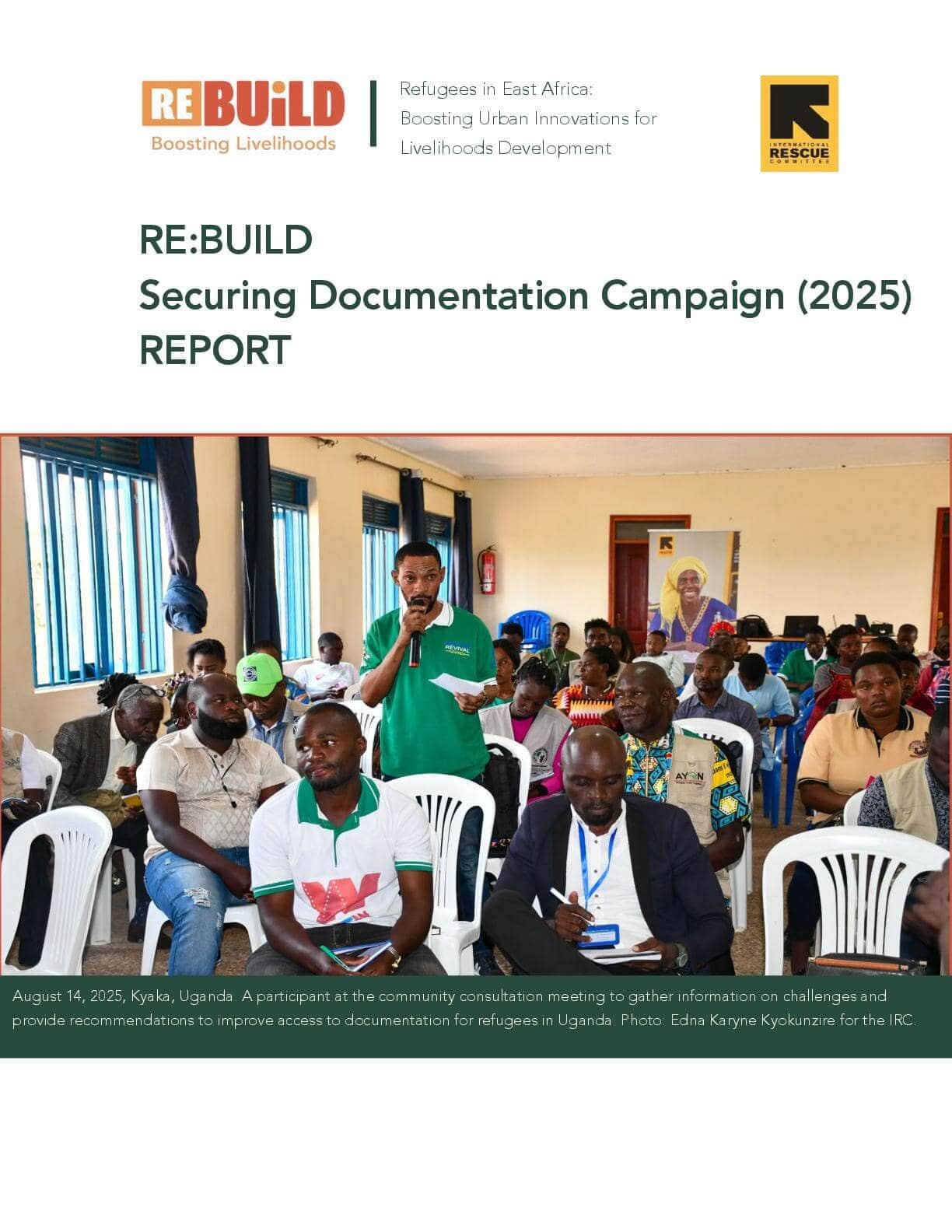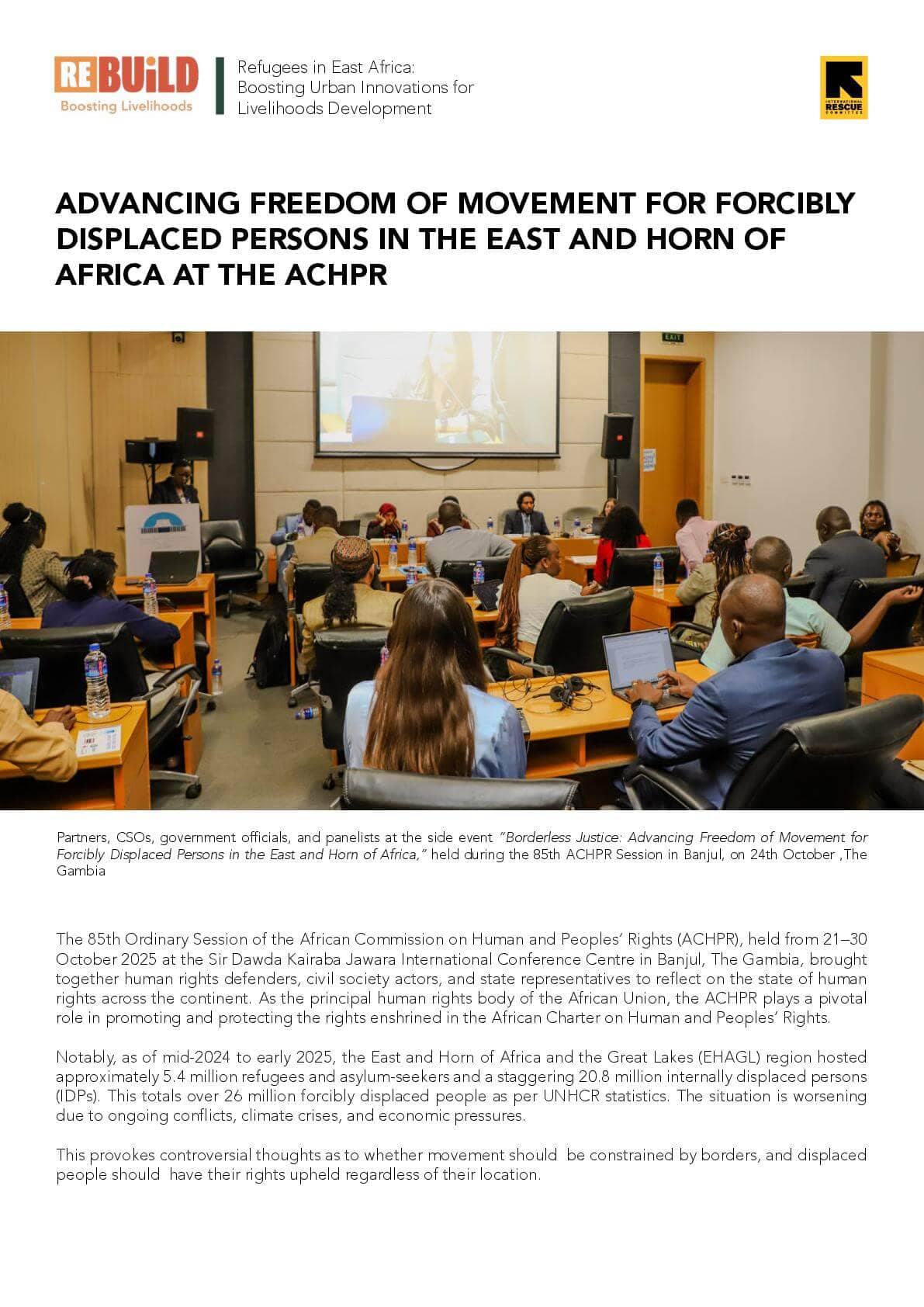Unpacking Effects of Mentorship on Refugees and Hosts in Kampala and Nairobi - A Qualitative Study
Unpacking Effects of Mentorship on Refugees and Hosts in Kampala and Nairobi - A Qualitative Study
In many urban contexts of lower- and middle-income countries, refugees are often excluded from formal employment and depend on micro and small-scale businesses as their primary source of income. Capital support, business training, and semi-formal savings structures such as Urban Savings and Loans Associations (USLAs) have been widely used to strengthen these livelihoods, but results remain mixed, especially for women and other marginalized groups who encounter multiple structural and social barriers.
To respond to these challenges, the International Rescue Committee (IRC) designed the Refugees in East Africa: Boosting Urban Innovations for Livelihoods Development (Re:BUiLD) program in 2021 in Kampala and Nairobi. Using Randomized Controlled Trials (RCTs), the program tested whether cash grants and business mentorship could improve the livelihoods and well-being of both refugees and host entrepreneurs. The trials revealed nuanced outcomes: in Kenya, men benefitted most from the combined approach of grants and mentorship, while refugee women showed limited improvements compared to men. In Uganda, cash transfers favored larger businesses, whereas mentorship produced uneven effects, with women, particularly those mentored by other women sometimes reporting negative experiences. Across the contexts, cash support alone delivered outcomes comparable to cash combined with mentorship in the short and medium term.



